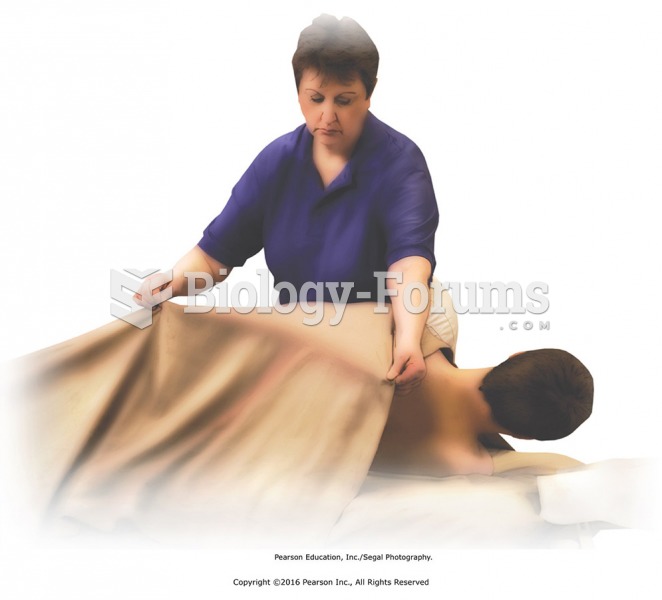This topic contains a solution. Click here to go to the answer
|
|
|
Did you know?
Asthma occurs in one in 11 children and in one in 12 adults. African Americans and Latinos have a higher risk for developing asthma than other groups.
Did you know?
The eye muscles are the most active muscles in the whole body. The external muscles that move the eyes are the strongest muscles in the human body for the job they have to do. They are 100 times more powerful than they need to be.
Did you know?
The average human gut is home to perhaps 500 to 1,000 different species of bacteria.
Did you know?
The familiar sounds of your heart are made by the heart's valves as they open and close.
Did you know?
Atropine was named after the Greek goddess Atropos, the oldest and ugliest of the three sisters known as the Fates, who controlled the destiny of men.







